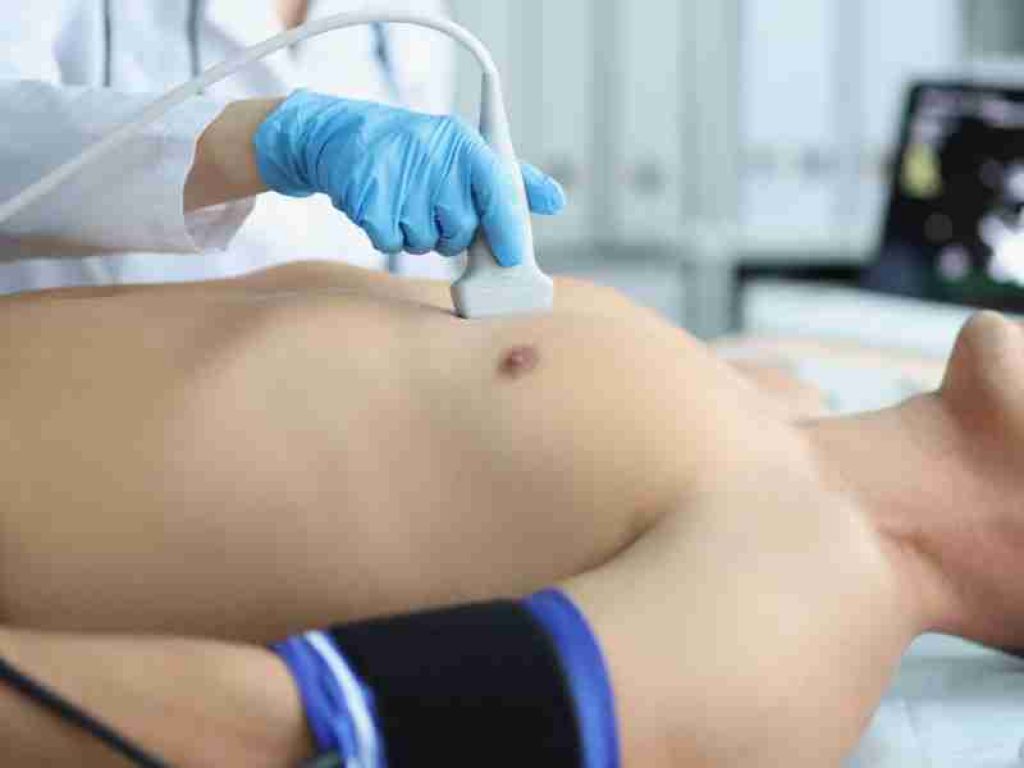
How To Become A Cardiology Nurse Practitioner?
In the same way that medical doctors and surgeons might specialize in a certain area of the body or field of medicine, nurses can also choose to focus on whichever component of healthcare most intrigues them. If you’re considering a career in nursing and are interested in cardiovascular medicine, becoming a cardiology nurse practitioner may be your best option.
It takes a unique set of skills and knowledge for a nurse practitioner to specialize in cardiology and give patients the care they need to maintain or improve their cardiovascular health. This article will give you an idea of what it’s like to work as a nurse practitioner in cardiology and how to get started in that field.
What is a Cardiology Nurse Practitioner?

A nurse practitioner in cardiology, often known as a cardiac nurse practitioner, focuses on caring for patients with conditions connected to the heart and blood vessels. Heart disease, valve problems, and arrhythmia are just some of the conditions they administer treatment plans for, working with other medical professionals. In hospitals, clinics, and private cardiology offices, nurse practitioners who specialize in cardiology keep tabs on their patients’ hearts over time and are on call to help in cardiac emergencies.
What responsibilities do Cardiology Nurse Practitioners have?
Nurse practitioners specializing in cardiology perform various clinical and administrative duties to ensure their patients receive optimal heart care. From the first meeting to discuss the patient’s history and symptoms to the final session to discuss the patient’s recovery, they are involved in every step of the diagnostic and treatment process.
Nurse practitioners who specialize in cardiology follow protocols that facilitate constant communication with other healthcare team members during treatment. A cardiology nurse practitioner’s typical responsibilities include the following:
Diagnosis test interpretation:
In cardiology, advanced nurse nurses (NPs) often work with diagnostic tests and their outcomes, requiring them to draw on their extensive understanding of these procedures and their interpretation. If a patient’s test results are out of the ordinary, they will notify the treating physician and the patient directly.
Cardiovascular examinations completed:
Nurse practitioners specializing in cardiology perform cardiovascular evaluations to diagnose chest pain, examine veins, take pulse and respiration rates, and discover any other issues with a patient.
knowledge of cardiovascular health:
In cardiology, nurse practitioners educate patients once they have received a diagnosis or treatment plan. Nurse practitioners specializing in cardiology can advise patients on managing their symptoms, refer them to community resources, and even prescribe medications to help lower cholesterol levels.
Inform your loved ones:
Cardio nurse practitioners coordinate treatment plans with other healthcare professionals, guardians, and the patient’s family using open dialogue. If a patient requires additional help, a cardiology nurse practitioner can talk to them and their loved ones about the latest developments and help them prepare for life following hospitalization.
Collecting patient medical histories:
As a cardiology nurse practitioner, it is essential to know the patient’s medical history as many cardiovascular diseases have a hereditary component. Cardiology nurse practitioners evaluate a patient’s risk factors by asking about their own medical background and the medical history of their relatives.
Patient chart completion:
After consulting with a patient, a nurse practitioner in cardiology updates the patient’s chart with relevant information. As a result, nurses and doctors will have one centralized source of information to draw when discussing a patient’s cardiovascular status.
Tests of stress:
One of a cardiology nurse practitioner’s primary responsibilities is to provide stress testing. Typically, this entails equipping the patient with exercise machinery, connecting the patient to a network of sensors, and comparing the patient’s vitals during active and inactive states.
Constantly checking vital signs:
Cardiology nurse practitioners can assess a patient’s risk of a cardiac event by observing their temperature, breathing rate, blood pressure, oxygen level, and heartbeat.
Duties of a cardiology nurse practitioner:
Physical examinations, patient and family education, and medication prescriptions are the most prevalent types of work performed by cardiologists. Other duties may include, depending on the company,
- Conducting stress analyses and analyzing results
- Conducting cardiac catheterizations and assisting (including stenting)
- Working together with the cardiac care team to develop and implement patient care plans
- Determining a person’s likelihood of acquiring cardiovascular disease
- Creating cardiac patients’ treatment plans
- Continued patient monitoring following cardiac operations
- Cardiac patient diagnostics include ordering, conducting, and analyzing laboratory tests
- Patient preoperative care for cardiac operations
- Medication prescription as part of a cardiac treatment strategy
Research into cardiac illnesses and their remedies may be a primary emphasis for certain cardiac nurse practitioners. Doctor of Nursing Practice-prepared nurses is more likely to work in academic settings or research clinics, where they can engage in scientific inquiry and educate students about cardiac care.
Skills Required of a Cardiac Nurse Practitioner
Cardiac nurse practitioners must be quick thinkers and have a steady hand on the wheel. Indeed, not all cardiac nurse practitioners (NPs) work in emergency rooms. Still, a career in cardiac nursing necessitates familiarity with a wide range of heart diseases, including those that require immediate medical attention.
Cardiovascular nurse practitioners need strong interpersonal skills since they consult with patients frequently on making positive lifestyle changes to better their heart health.
The work environment for Cardiovascular Nurse Practitioners:
The cardiac nurse practitioner might find employment in various medical settings. Many cardiac nurse practitioners (NPs) work in medical centers, emergency departments, and clinics, focusing on heart health.
They also frequently find employment at community health centers and nursing homes. Although many cardiac nurse practitioners work in hospitals, clinics, or other healthcare facilities, other employment opportunities exist in medical device manufacturing, public service, and higher education industries.
In most cases, cardiac nurse practitioners work full-time, though their schedules may vary widely depending on their job. Cardiovascular Nurse Practitioners may be required to work nontraditional hours such as nights, weekends and on-call shifts in hospitals and urgent care facilities. Cardiology nurse practitioners who offer primary care or who are employed in outpatient centers may provide services during usual business hours.
How to become a Cardiology Nurse Practitioner?
Learn all you need to know to become a nurse practitioner in cardiology by following these steps:

Attend Nursing School:
To become a cardiac nurse, the minimum requirement is to have a Bachelor’s degree in nursing. This enables you to enter the field and become a Registered Nurse (RN), while also gaining general nursing experience.
You can build a solid basis for a future job as a cardiac nurse practitioner on the knowledge and abilities you gain during your nursing education. It’s possible to complete your BSN in a shortened time frame if you already have a bachelor’s degree (BSN). A Bachelor of Science in Nursing degree typically takes four years to complete.
Pass the NCLEX-RN and become a registered nurse:
Upon finishing a nursing program, an individual can become a registered nurse by taking and passing the National Council Licensure Examination (NCLEX), which costs $200. This examination assesses basic competencies in four areas.
- An effective and safe care environment
- Health education and maintenance
- Psychosocial and psychological integrity centered on patient needs
Basic nursing competencies must be shown to have been mastered to pass.
Get some practice in emergency and cardiac care:
After passing the necessary exams and receiving your license, you will be eligible to apply for your first nursing job. Registered nurses can wait to pursue a Master of Science in Nursing (MSN) after gaining experience, or they can go from their bachelor’s degree to the master’s and get experience afterwards.
Submit your resume to companies that provide training programs in cardiology. Because of the potentially life-threatening nature of cardiac diseases, many cardiology nurses begin their careers in acute care. You can build your résumé and acquire skills relevant to cardiac nursing before you specialize.
Pursue a Master of Science in Nursing degree:
A doctoral degree in nursing is required for nurse practitioners. Find a cardiology-focused MSN program with engaging coursework and clinical rotations. The advanced nursing skills and knowledge you gain in a Master of Science in Nursing program can allow you to take greater initiative with patients. To become a licensed nurse practitioner, you should investigate the prerequisites for doing so in your state.
Obtain Credentials in Your Field:
Once you are done with your studies and have gained experience working in a medical facility (such as a hospital, clinic, or cardiac center), it is possible to apply for specific certification as a cardiology nurse practitioner. The American Nurses Credentialing Center offers a Cardiovascular Nursing Certification, but that’s only one of several available alternatives (ANCC).
You’ll need at least two years of experience as a registered nurse (RN), two thousand hours of experience working in a medical setting relevant to cardiology, and thirty hours of professional development in cardiac care to qualify for this. Other options include the American Association of Critical Care Nurses’ Cardiac Medicine Certification and the American Nurses Credentialing Center’s Certified Cardiac Rehabilitation Professional exam.
Advantages of Cardiology Nurse Practitioner
Selecting a niche field of expertise like cardiology demonstrates a serious commitment to serving patients with complex medical needs. You wish to enroll in the course of study that will enable you to become a specialist who can provide the highest quality care to your patients. The goal of nurse practitioner programs in cardiology is to provide you with the knowledge and skills to provide this level of care. Several positive aspects of NP programs in cardiology are described here.
Take advice from experts:
The article’s focus on cardiology NP programs highlights the value of learning under the tutelage of individuals who have already established themselves as experts in the field. Fellowships, residencies, and post-graduate certificate programs in cardiology nurse practitioner education provide access to leading experts in the field. As a result, you’ll be ready to provide your clients with the required attention.
Pursue advanced training in the medical field:
Every part of the body might be negatively affected by improper heart function. Nurse practitioners specializing in cardiology contribute much to the quality of care received by patients. In part, improved patient outcomes can be attributed to the nurse provided by programs that prepare advanced-practice registered nurses for work as the practitioner of cardiology.
Foster stability in the workplace:
If you’re interested in cardiology, for example, and want to become an expert in your subject, you can choose to specialize. Boosting your marketability and ensuring your continued employment is a byproduct of becoming a specialist in cardiac care. Long-term work opportunities are more likely for top-tier healthcare providers because hospitals and other healthcare facilities compete to hire them.
Make more money:
A great deal of accountability is associated with the nurse practitioner position in cardiology. Even though not every heart patient has an emergency, cardiac care is still highly skilled. Employers pay cardiology NPs competitive salaries because they value their expertise and recognize the high need for care in this cardiology.
You can have an impact:
Nurse practitioners can significantly impact their patient’s health and wellness by taking advantage of the practitioner offered by schools of nurses specializing in cardiology. As a nurse practitioner in cardiology, your work has the potential to improve both the length and quality of life for your patients.
What Jobs are Available Cardiology Nurse Practitioners?
Cardiology nurse practitioners (NPs) can find employment in various fields after finishing a post-graduate degree, residency, or fellowship program.

Clinics for Cardiology:
Cardiology nurse practitioners (NPs) work in cardiology clinics, evaluating patients, ordering diagnostic tests and procedures, and beginning or modifying treatment plans.
Cardiology for Children:
Certain cardiology nurse practitioners may focus on a subspecialty, such as a pediatrics. They could be employed in a hospital’s pediatric cardiology unit or a standalone clinic specializing in the care of young patients. Patients under eighteen are the usual focus of pediatric nurse practitioners.
Cardiac Care Center:
Patients with severe or acute cardiac abnormalities who require round-the-clock monitoring by medical professionals are treated in this hospital’s specialist cardiac care unit. Those in the CCU might be healing from a heart operation. Some people may need constant monitoring because they have suffered a heart attack or exhibit other forms of cardiac instability.
Urgent Care Centers:
It’s normal for nurse practitioners who specialize in cardiology to work in emergency rooms or be on call for such situations. Patients experiencing cardiac symptoms often seek immediate care at an emergency room.
In the Academic World:
Cardiology nurse practitioners, who have completed specialized training programs, make a tremendous impact in nursing education. Some cardiology nurse practitioners may eventually switch to a different field entirely. Some nurses may have a job that combines teaching nursing at universities while also working full time in cardiology clinics or CCUs.
What is the salary of a cardiology nurse practitioner?
If nurse practitioner chooses to specialize in cardiology, they may make more than the average pay of $115,852 per year. A cardiology nurse practitioner’s salary is influenced by several variables, including the individual’s location, education level, certifications, and employer.
Conclusion
If you are a nurse practitioner with aspirations of joining an exclusive group of healthcare experts, a cardiology nurse practitioner may be a field you want to look into. You can improve your patient’s health, career prospects, and financial stability by specializing in cardiology and becoming a nurse practitioner (NP). If this career path interests you, you should investigate the top-ranked cardiology nurse practitioner programs for 2023 discussed in this article.







